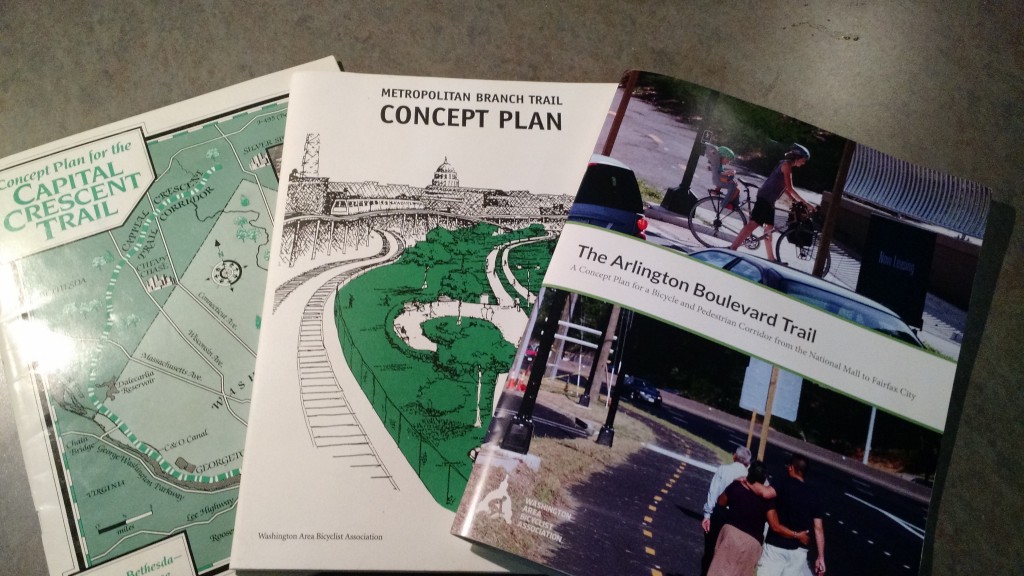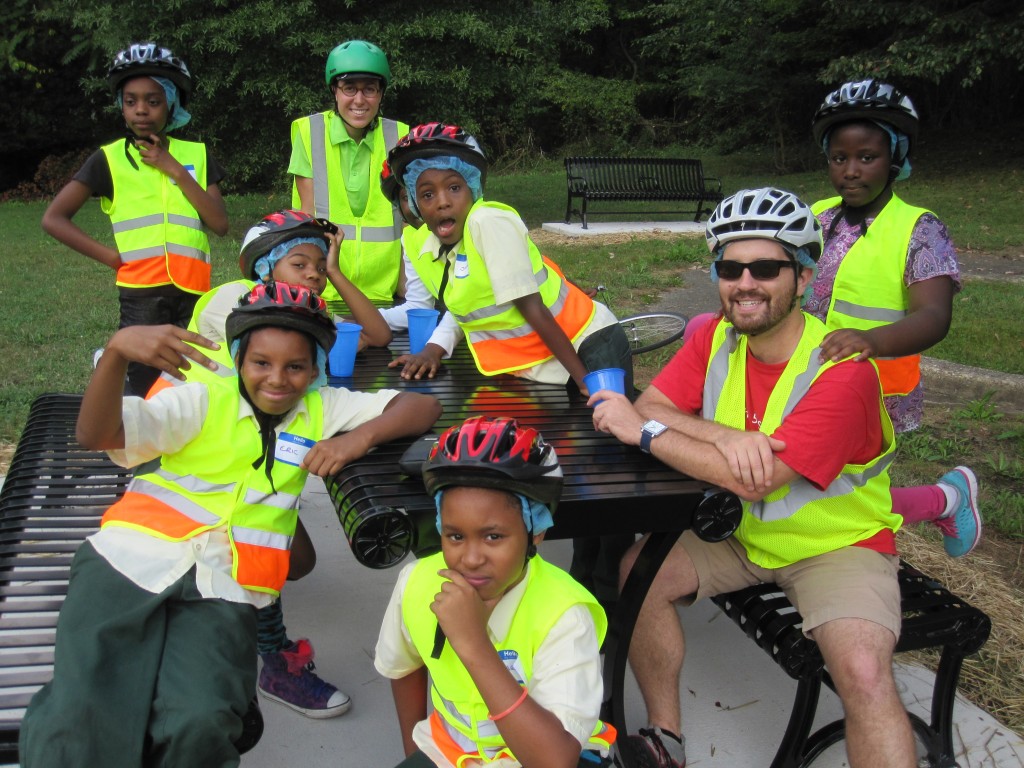
Sign up here to get the weekly roundup in your inbox each and every Friday.
Giddyup! Please share this to spread the word about biking and walking advocacy.
| Share on Facebook |
SYMPOSING ON VISION ZERO FOR CITIES
Last week, the Alliance joined advocates and transportation leaders from near and far for the first-ever Vision Zero for Cities Symposium. Hosted by Transportation Alternatives in New York City, the event brought together experts to focus on the challenge of eliminating preventable traffic injuries and deaths.
Head on over to Transportation Alternatives' blog to see the collectively drafted statement of principles from the event. Among the principles:
- "Recognize the power of crash survivors and the families of people killed and seriously injured in traffic, and the widespread scale of traffic violence."
- "Ensure the justice system holds individuals accountable for killing and injuring others in traffic."
- "Design streets in such a way that mistakes made by street users are less likely to result in serious injuries or fatalities."
- "Prioritize safety in funding decisions."
Sarah Goodyear from CityLab snagged an interview with Swedish traffic safety strategist Matts-Åke Belin, who was in New York for the Symposium. Belin works within the Swedish Transport Administration to ensure that Vision Zero principles permeate throughout the country's approach to managing public roads, from design and engineering to enforcement and education.
The entire interview is well worth the read. Here are a few compelling snippets from Belin:
- "The largest resistance we got to the idea about Vision Zero was from those political economists that have built their whole career on cost-benefit analysis. ... Because in their economic models, you have costs and benefits, and although they might not say it explicitly, the idea is that there is an optimum number of fatalities. A price that you have to pay for transport. The problem is the whole transport sector is quite influenced by the whole utilitarianist mindset. Now we’re bringing in the idea that it’s not acceptable to be killed or seriously injured when you’re transporting. It’s more a civil-rights thing that you bring into the policy."
- "Most of the people in the safety community had invested in the idea that safety work is about changing human behavior. Vision Zero says instead that people make mistakes, they have a certain tolerance for external violence, let’s create a system for the humans instead of trying to adjust the humans to the system."
- "If we can create a system where people are safe, why shouldn’t we? Why should we put the whole responsibility on the individual road user, when we know they will talk on their phones, they will do lots of things that we might not be happy about? So let’s try to build a more human-friendly system instead. And we have the knowledge to do that."
- "We have seen it is not enough to, for example, change the speed limit. You maybe have to put in speed bumps. You have to think through all the conflict spots that you have in your traffic system."
- "Vision Zero would look beyond [an individual fatal crash]. ... What could we do from an evidence-based perspective to make sure that this kind of mistake could not end up in this catastrophe? Because these mistakes will happen all the time. In our societies now, we are so dependent on road transport, we need to allow almost everyone to use this technology. That brings it back to those of us who design the system: We need to design a system that supports these people so you don’t have this catastrophe."
- "It’s not a war between unprotected road user and protected road user. Here we need to have a more holistic perspective. Where we need cars because they are good for society, we should use them. But in places where we don’t need them, we shouldn’t use them as much as we do."
Bike San Diego sent two advocates along with several city decision-makers to the Symposium. Here are the big ideas they're bringing back.
INFRASTRUCTURE INLET
A new study from Minneapolis supports the idea that building more bicycle infrastructure can increase active commuting by bicycle.
For those of us in parts of the continent that get snow, it's sidewalk shoveling season.
The Washington Area Bicyclist Association releases a concept plan for a new trail through Arlington.

BIG PICTURE BOULEVARD
Are we taking active play seriously?
Could Seattle become an 8 - 80 city?
BikeWalk KC welcomes two new staff members; the Wisconsin Bike Fed snags a stellar staffer from the Active Transportation Alliance.
Governing Magazine named Florida DOT staffer Billy Hattaway an outstanding Public Official of the Year for his efforts to make the state safer for pedestrians and cyclists.
Congratulations to Georgia Bikes for winning funding from the Governor's Office of Highway Safety to support bicycle safety education.
Pittsburgh's Mayor Peduto responds to bikelash.
Another visual illustration of how much space we humans take up in different transportation modes.
ADVOCACY AVENUE
With CitiBike set to expand under a new management structure, advocates at Transportation Alternatives plan to push for expanded bike infrastructure networks.
A Chicago crash victim calls for separation between bicyclists and pedestrians on the Lakefront Trail.
Advocates in Edmonton push for future bike routes.
Bicycle Colorado staff are excited to see new transit around the state.
This week, many Alliance member organizations were pleased to announce that cities in their areas had received Bicycle Friendly Community status from the League of American Bicyclists.
- Now that Honolulu is a Bicycle Friendly Community, all 50 states now officially have at least one BFC.
- New Orleans is now a silver-level BFC.
- In Illinois, Urbana reached gold status and Normal scored bronze.
- Peachtree City is Georgia's 8th BFC.
- Sanibel, Florida won silver status.
- Texas now has three new honorable mention cities and four ranked BFCs.
- Connecticut now has two new BFCs.
Bicitekas and the other organizations within BICIRED express solidarity with 43 desaparecidos in Mexico and call for an end to systemic violence.
LEGISLATION LANE
Congrats to Baldwin Park's city council for passing the San Gabriel Valley bicycle master plan. Two cities down, three to go!
In Illinois, 58 infrastructure and non-infrastructure projects will receive Safe Routes to School funding from the state DOT.
Washington Bikes held a successful legislative bike ride.
Rob Sadowsky of the Bicycle Transportation Alliance speaks in favor of a more progressive proposed street fee. Advocates encourage their members to email their commissioners in support.
PROGRAMMING PROMENADE
Bike Easy in New Orleans is fundraising for a fleet of kids' bikes.
#TBT to when BikeTexas was deciding which bicycle license plate design to use.
Community Cycling Center in Portland held a hackathon to develop the Avenues to Advocacy tool.
This year, the Washington Area Bicyclist Association piloted two Bike Clubs, afterschool enrichment programs in which youth explore their neighborhoods on bikes and combine biking with academic and team-building activities.

GET A JOB
Bike Houston is hiring a membership manager / director.
The Safe Routes to School National Partnership is hiring an executive director.
The state and local biking and walking advocacy movement is growing. Check out the Alliance for Biking & Walking job board for listings all over North America.
TRAILER
This illustration calls attention to just how little public roadway space is dedicated to pedestrians.
/cdn0.vox-cdn.com/uploads/chorus_asset/file/2466040/3206.0.jpg)
Illustration by Claes Tingvall of the Swedish Road Administration, via Vox

